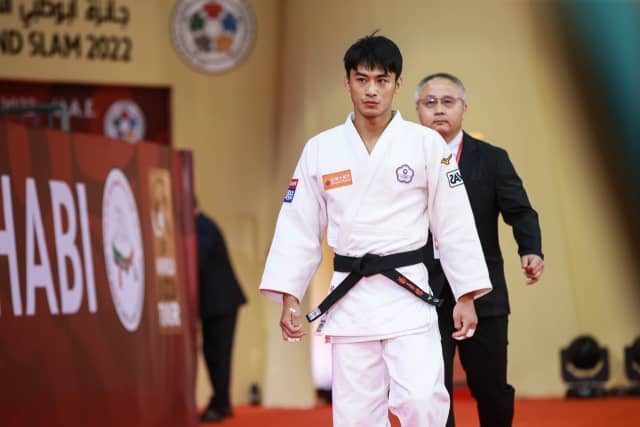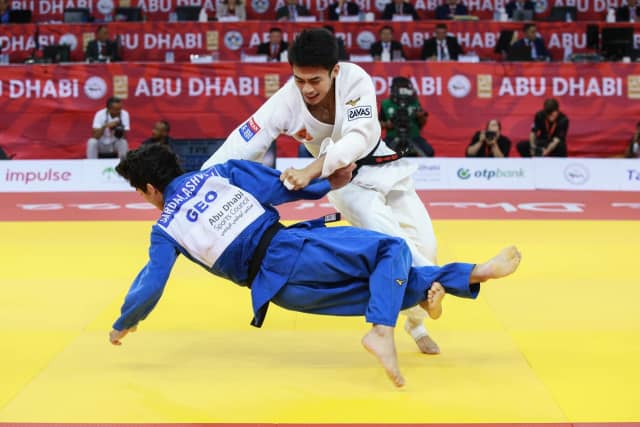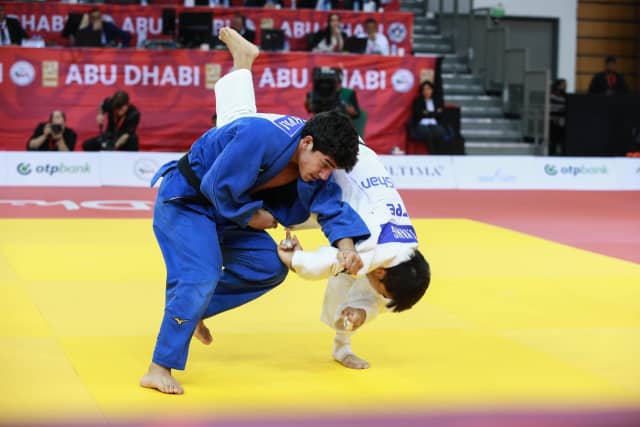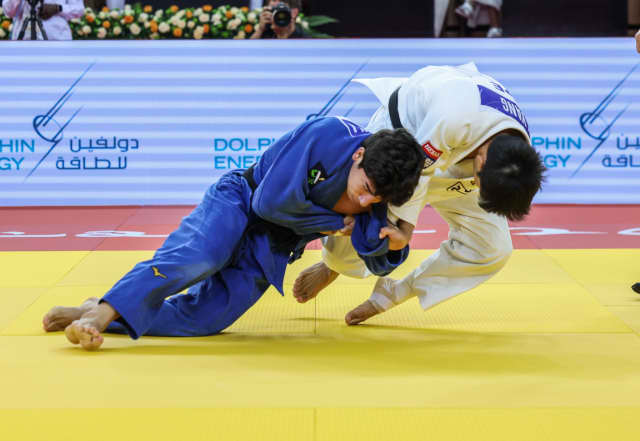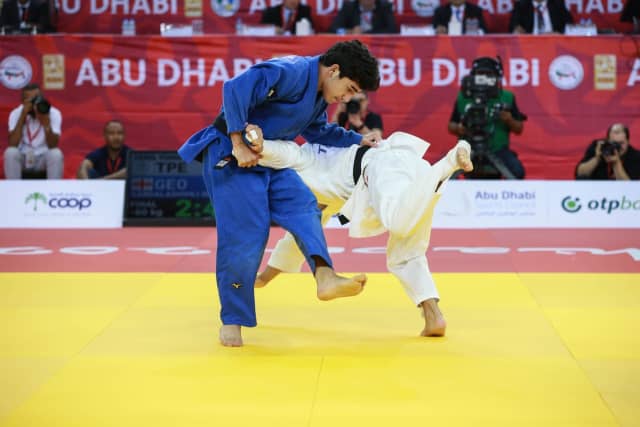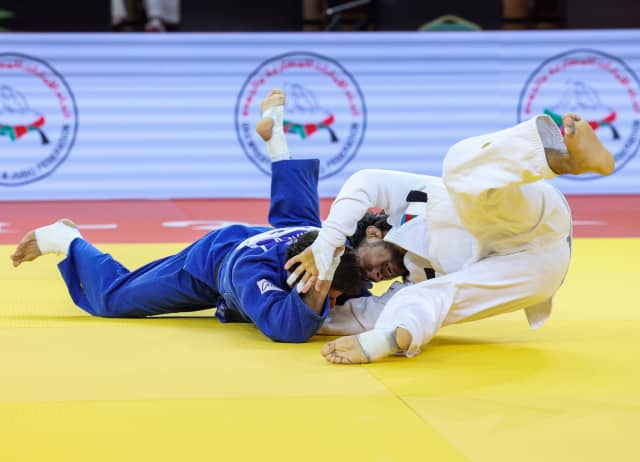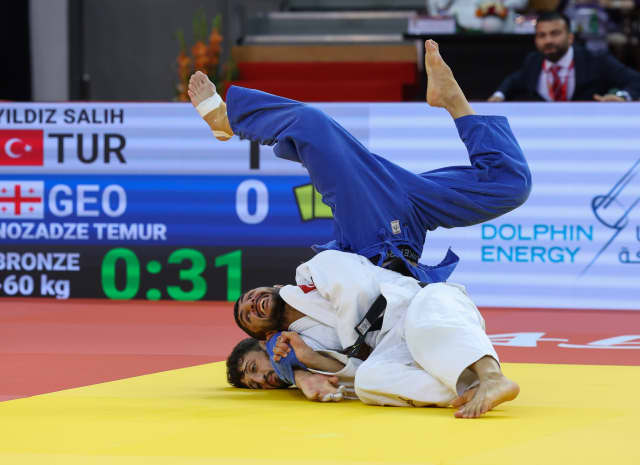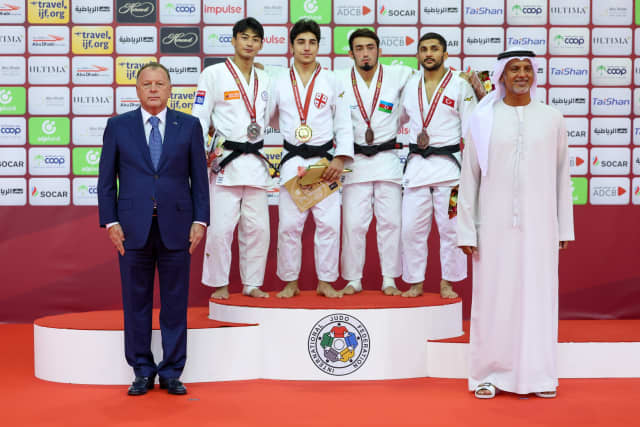As a serious guy, Yang took the matter naturally and professionally and reached the quarter-finals without breaking a sweat, with the energy tank completely full. His first really dangerous opponent was Turan Bayramov, a young man from the Azeri school who has been standing out with an offensive judo that is a pleasure to see. Bayramov's resistance lasted three minutes, which Yang used to score twice. Beyond the waza-ari, what caught our attention was the speed, the swiftness. Yang is in Olympic form and he wants it to be known; on to the semi-finals.
Of all the athletes present in Abu Dhabi, the one who surprised the most, and that is also excellent news, was the Indian Vijay Kumar Yadav, who elegantly eliminated the German Maximilian Standke and earned a place in the quarter-finals against the Dutchman Tornike Tsjakadoea. With all said and done, Yadav did not make the trip in vain and that is the beauty of judo, when emerging countries in this sport take a step forward and we hope it will be forever. Nikoloz agrees but one thing is to dream and another is the reality and with open eyes there is always a Georgian to spoil a sweet dream. Temur Nozadze delivered a devastating ippon against Yadav and entered the semi-finals against Yang. In any case the Indian would fight in the repechage and with his seventh place the tournament has been a success. Nikoloz still agrees and he did too when we saw Yang give an offensive recital against the Georgian. It was as if the Taipei driver was in sixth gear while the Georgian was still between third and fourth. It was a speed difference and Yang’s was supersonic. He marched to the final to wait for the name of his rival.
We were curious to see Jorre Verstraeten because he didn't shine in Tashkent. It is as if the Belgian had reached his peak of form before his time and was now in full decline. He lost against the Ukrainian Dilshot Khalmatov. The next surprise came at the bottom of the table with the defeat of the Spanish and European champion Francisco Garrigós at the hands of the Turkish Salih Yildiz. We can say that Yildiz literally crushed the Spaniard, who in turn fell against the Georgian Sardalashvili.
The semi-finalists were therefore the Georgian Giorgi Sardalashvili and Azerbaijani Balabay Aghayev, whose judo is like that of his compatriot Bayramov. Sardalashvili is the typical son of his homeland, a warrior who makes judo a sight for the eyes, with constant attacks and wins or losses by ippon. This time it was a deserved victory. All good Nikoloz? “Yes, keep writing.” So we keep writing.
Yang versus Sardalashvili is on paper synonymous with fireworks. The reality is that the number one in the world was the clear favourite, nothing new in that sense, and the Georgian has a lot to show and even more to learn, but that he was going to fight in the Georgian style was the only certainty. So it was and Sardalashvili managed to do what no-one else had done all morning, knock Yang down. It was a waza-ari and some pressure for the Taipei judoka, who is not used to such situations. He tried by all means, but the Georgian endured and got much more than his first grand slam gold, he got the most important victory of his budding career against the best rival.
Azerbaijan secured the first bronze with the duel between compatriots. Aghayev won because he scored waza-ari and because Bayramov hurt himself and was in shock for several seconds. He recovered and improved, even endangering his rival but it was insufficient. For the rest, same haircut, same beard, same school and good judo. Surely we will see these two again in Baku.
The Turkish Yildiz had to get past the Georgian Nozadze to get the second bronze. The number 50 in the ranking against the 8 is a priori, an unbalanced fight, but Yildiz fought without complexes, which is the best he could do. Nozadzde was punished with two shido, which served as a shock to bring out what he has inside but the Turk did not lose concentration and executed a beautiful technique for a waza-ari that put the Georgian against the ropes. Nozadze was so rushed that Yildiz had no problem scoring a second waza-ari, the easiest of his career because he had done the hardest part just before.

